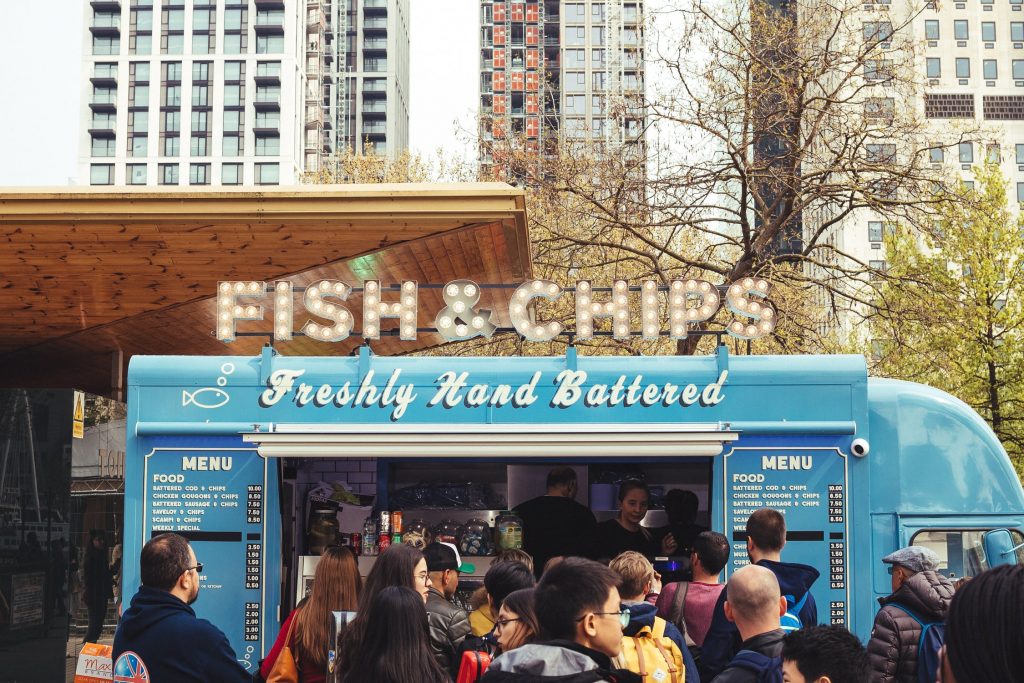While the food industry may be competitive it does not make the market impenetrable—there’s room enough for everyone. Taking your food truck idea from an intangible idea to an actual living, breathing enterprise takes courage and wit. If you’re looking to cash in on the mobile food business but haven’t a clue just how to get your million dollar idea off the ground, we have you covered. Keep reading as we explore five crucial steps you can take to get your food truck plan from a concept to an actual business.
1. Formulate your business plan.
While it may seem like an unconventional business venture, starting a food truck business requires the same amount of effort that a more conventional seeming business does, if not more. Knowing this, a concise business plan would be your best bet to ensure that your business has a clear roadmap on how it will position itself to stand apart from existing food truck models.
If this is your first go at creating a business plan, it should include the following:
- Executive summary: Introduce your product and the industry you intend to venture into.
- Mission statement: Describe the purpose of your business.
- Company description: This section includes the reason or reasons that you think your business will be successful
- Market analysis: This section shows that you have an understanding of the industry you’re getting into and also outlines how your product will stand out
- Product line: Include your menu in this section.
- Marketing: This section shows how you intend to entice new customers to buy your products.
2. Create your menu.
If you’re passionate about food, then this is undoubtedly the most fun part of the start-up process. The menu is the heart of your business and also what will guide you in the equipment you need to purchase. If you sell mini pizzas, for instance, your equipment stand may differ from a food truck that specializes in baked goods or frozen foods, for instance.
3. Purchase restaurant equipment.
A study conducted by Ohio State University found that nearly 80% of new restaurants go out of business within their first five years of operation. Because of this, most restaurant equipment retailers often report a high turnover of high-quality commercial kitchen equipment that is still well-maintained. This reads as good news for a budding business owner as it offers you access to used restaurant equipment that is still in pretty good shape.
Used restaurant equipment can be easily purchased through Craigslist, eBay, online auctions, or reputable foodservice equipment suppliers. When purchasing food truck kitchen accessories from online auctions or other online retailers, you will need to bring along your own transportation equipment as well as extra hands to help you carry your equipment. Further to this, most used restaurant equipment bought off Craigslist does not offer warranties or after-sales service options such as repairs. Knowing this, the best way to purchase used food service equipment is through reputable retailers and resellers like The Restaurant Warehouse.
Stocking a variety of reputable brands such as Turbo Air, Atosa Catering Equipment, Traulsen, and Hoshizaki- to mention a few, you can trust that their pizza prep tables, freezers, fryers, refrigerator options, dishwashers, actual food trucks, ice machines, under-counter, and commercial kitchen equipment are in the best working condition. Additionally, opting for used commercial kitchen equipment is also a great way to reduce your carbon footprint by minimizing environmental waste.
4. Invest in marketing.
Every business needs visibility, and in this digital age, social media advertising is your best bet. As you do this, do not forget to stock up on alternative payment systems such as point of sale systems, while you consider other payment options such as credit cards.
5. Acquire business permits, insurance, and other licenses as required.
A business permit is essential for every business. When it comes to food trucks, different states have different requirements. Some states, for instance, require that you have a permit for each location you intend to park your food truck. Be sure to research your locality’s requirements before you begin operation.



